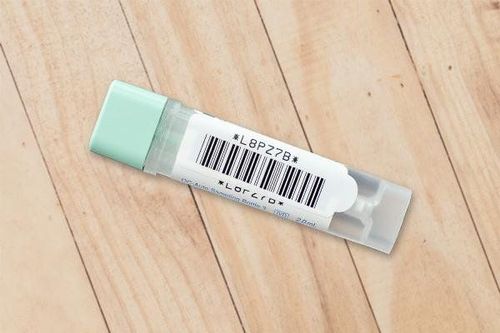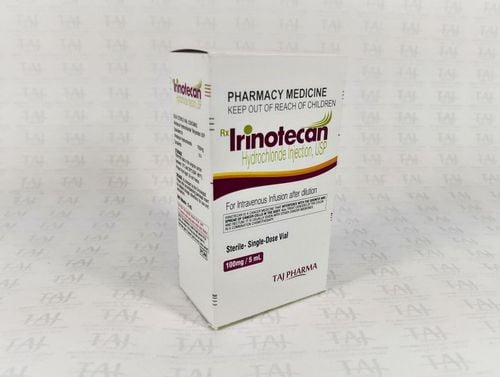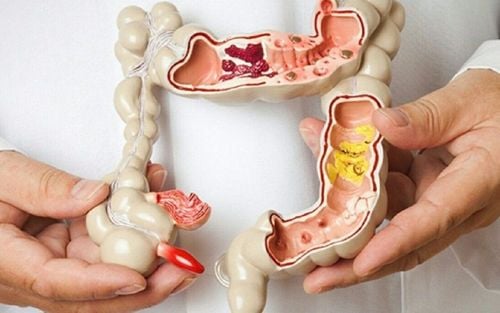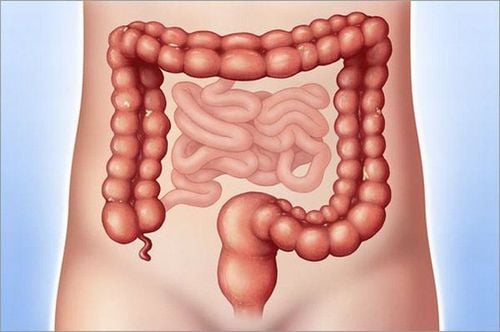This is an automatically translated article.
The article is professionally consulted by Master, Doctor Tran Thi Vuong - Laboratory Department - Vinmec Hai Phong International General Hospital.
According to the Global Cancer Registry (GLOBOCAN) 2018, colorectal cancer is the fifth most common cancer in terms of morbidity and mortality worldwide. In Vietnam, colorectal cancer is tending to be younger and younger. The fecal occult blood test is one of the methods to help detect colorectal cancer.
1. The concept of fecal occult blood test
A fecal occult blood test (FOBT) can help detect very small amounts of blood in the stool. This test will take a stool sample two or three times, using a test kit. Samples are collected from multiple excretions, so any problems can be detected. These samples will be analyzed in a pathology laboratory, and if blood is found, additional tests may be needed. There are currently two different types of FOBT in Australia: guaiac and immunochemical.The guaiac test requires a change in diet and medication and requires stool samples from three different excretions.
Immunochemical testing is generally more widely accepted, as there is no need to change the patient's medications or diet and only requires sampling from two separate excretions.
While the FOBT is not currently the most accurate diagnostic test for bowel cancer, it is the most well-researched screening test, as well as the most widely accepted and least expensive test available. The FOBT test is also non-invasive compared to colonoscopy and colonoscopy.
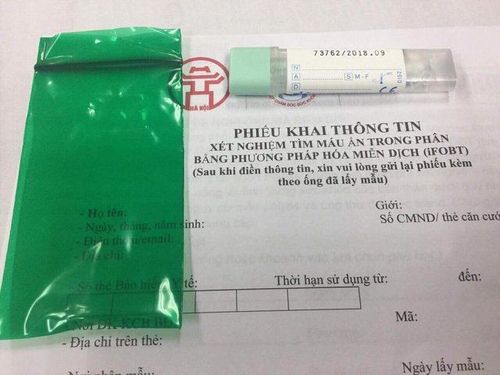
Dù FOBT hiện chưa phải là xét nghiệm chẩn đoán ung thư ruột chính xác nhất, nhưng là xét nghiệm kiểm tra được nghiên cứu kỹ nhất
2. In what cases is the fecal occult blood test done?
Your doctor will recommend a fecal occult blood test in the following cases:Colon cancer screening: If you are age 50 or older and have an average risk of colon cancer, your doctor may will recommend a fecal blood test every year to screen for colon cancer. In addition, the person may need screening tests that allow the doctor to examine the sign directly.
Evaluate possible causes of unexplained anemia: Anemia is a condition in which red blood cells are not healthy enough to carry adequate oxygen to tissues. Sometimes a fecal occult blood test is used to determine whether gastrointestinal bleeding, such as a bleeding ulcer - is contributing to the anemia.
3. Who needs a fecal occult blood test?
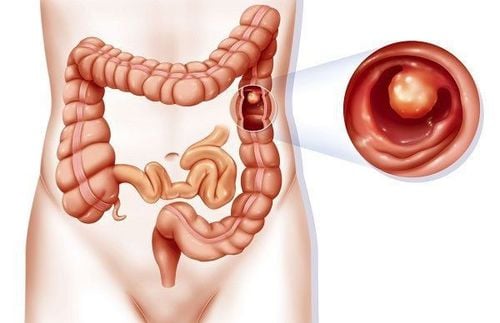
Người có tiền sử bệnh polyp đại tràng có nguy cơ mắc bệnh ung thư ruột hơn bình thường
Have a history of polyps in the bowel. Have a history of bowel cancer. Have a chronic inflammatory bowel disease such as Crohn's Disease Have a family history of bowel cancer. Having hereditary non-polyposis colorectal cancer or adenomatous polyposis runs in the family. Have diabetes or high insulin levels. If the patient is at increased risk, follow-up options should be discussed with the physician. Gastrointestinal cancer screening is a scientific and effective measure for early detection of gastrointestinal cancers (esophageal cancer, stomach cancer, colon cancer) and giving the best treatment regimen. . Currently, Vinmec International General Hospital has a package of screening and early detection of cancers of the gastrointestinal tract (esophagus - stomach - colon) combined with clinical and paraclinical examination to bring the most accurate results. maybe.
When screened for gastrointestinal cancer at Vinmec, you will receive:
Gastrointestinal specialty examination with an oncologist (by appointment). Gastroscopy and colonoscopy with an NBI endoscope with anesthesia. Peripheral blood count (laser counter). Automated prothrombin time test. Automated thrombin time test. Activated Partial Thromboplastin Time (APTT) test using an automated machine. General abdominal ultrasound To register for screening and treatment of gastrointestinal diseases at Vinmec International General Hospital, you can contact Vinmec Health System nationwide, or register for an online examination. HERE .
Master. Doctor. After graduating as a general practitioner, Tran Thi Vuong spent 2 years training in microbiology in Japan. With 9 years of teaching experience at Hai Phong University of Medicine and Pharmacy, participating in many domestic and foreign scientific research projects, receiving continuous training in Laboratory Biosafety and Laboratory Quality Assurance. at the National Hospital for Tropical Diseases, has experience in diagnostic testing for bacterial and viral infections. Currently, he is a doctor at the Laboratory Department of Vinmec Hai Phong International General Hospital.
If you have a need for consultation and examination at Vinmec Hospitals under the national health system, please book an appointment on the website for service.







